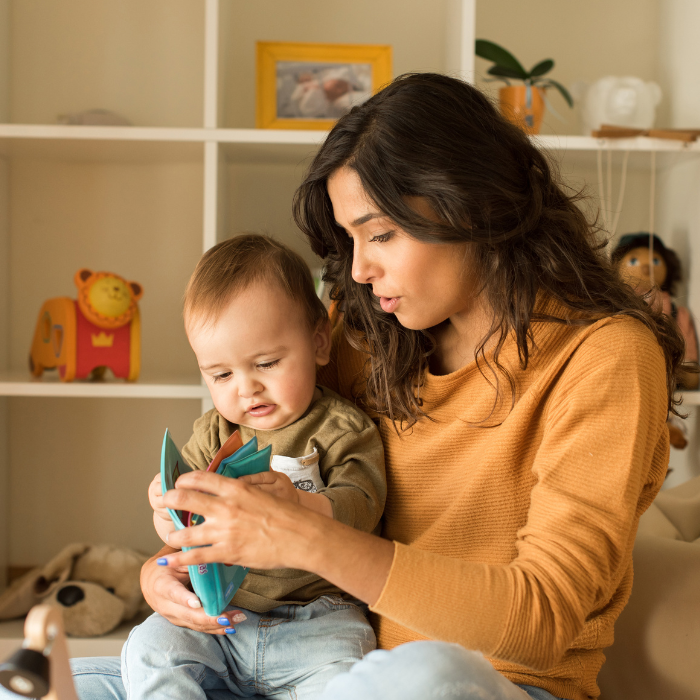
Are your children at the stage where they can Read independently? If the answer is yes, Diana Noonan would like to make a heartfelt plea: Please, whatever you do, whatever the age of your children, do not stop reading aloud to them.
There’s no denying it’s a busy world, especially if you’re the parent of a young family, or managing the complex needs of older children as well. No wonder, then, that it can be very tempting, when your five- or six-year-old can at last read a simple story for themselves, or your tweenies and teens seem to be engrossed in their own books, to farewell the read-aloud routine.
Unfortunately, if you do go down this track, you’ll be farewelling much else that is important, not only to your children’s learning, but also to their emotional wellbeing. Reading ability notoriously lags behind interest level so although your child (whatever their age) can read well enough to enjoy a book alone, it may not be a book that particularly satisfies their curiosity. Picture the seven year old who desperately wants to read the Harry Potter series but simply can’t tackle the language of the novels: the punctuation or the extended vocabulary. By reading the books aloud to them, you become the door through which they can enter that other world they so much want to belong to. And in being that vehicle, in declaring your own interest in the book, and caring enough about your child to give them your time in this way, you are creating bonds that tie you more closely together. Never underestimate, either, the modelling of fluency you bring to a read aloud session. There is an art to reading to an audience that we want to impart to children who, in myriad ways, will be called on to do the same thing throughout their lives. From delivering a speech to reading a newspaper article to an elderly relative or taking part in a play-reading – even to reading instructions aloud to another, there are always times when we need to read fluently. When you read aloud, especially if your child can see the text and follow it with their eyes, they hear the way you pause at different punctuation marks, how you give emphasis to italicised words, how you take a longer break at the end of a paragraph – and they will emulate that.
It is always an advantage if we can choose a book that will appeal to several ages at once, something that is perhaps more easily achieved when our children are all in the same age bracket. A short chapter book with a few line drawings, for example, will hold the interest of a five year old as well as a nine year old – but sometimes it is well worthwhile setting aside time to read solely to your older children. Although this may sound near impossible when you have only teens in the house, if you start the habit early enough, it will become accepted by the time it needs to be.
Reading aloud to older children does not have to happen when you are all sitting together on the sofa (although this can be an enjoyable way to do things). It might take place while your teens are doing something else at the same time, such as drawing or crafting, or when you are travelling together in a car or snuggled into sleeping bags at night in a tent or caravan. And it does not need to be only you who does the reading. Share the book around! Best of all, a book shared with older children can be a way to subtly negotiate together the sensitive subjects that, dealt with out of context, might cause awkwardness. YA novels abound with storylines that pursue the themes of sexuality and relationships are often lightened with a little humour. Read them together, and don’t be surprised if, a day or two later, your teen raises an issue a shared book contains, simply because they now have a platform from which to launch a discussion. Not that reading aloud to older children need be about serious subjects only. Reach for a Bill Bryson, for instance, and you and your audience may end up rolling around the floor convulsed in laughter!
If fiction isn’t a favourite with your children, whatever their age, there’s no need to stick with it. Head for magazine articles for older children or read to everyone together about a holiday destination you’ll soon be heading to. A “how-to” read that involves a new family venture (such as getting a puppy or going on your first tramp) goes down well with all ages, too. Or dig out an historic family diary to read from, or other memorabilia such as courtship letters from great grandparents!
However you do it, wherever you do it, make reading aloud to all your children a priority. If you do, you’ll become a hero in your own house, help your children academically, and create lasting memories of togetherness for your family.
Never underestimate, either, the modelling of fluency you bring to a read aloud session.
Catlins author Diana Noonan is one of New Zealand’s best-known writers for children. A former editor of the iconic School Journal, she writes for a wide range of educational resources, and takes a strong interest in the New Zealand curriculum.








